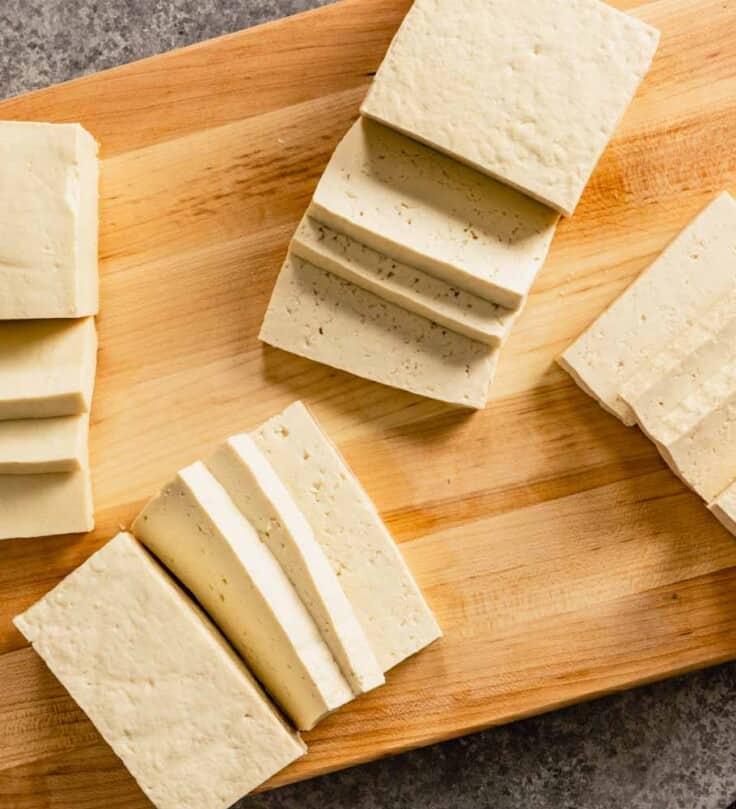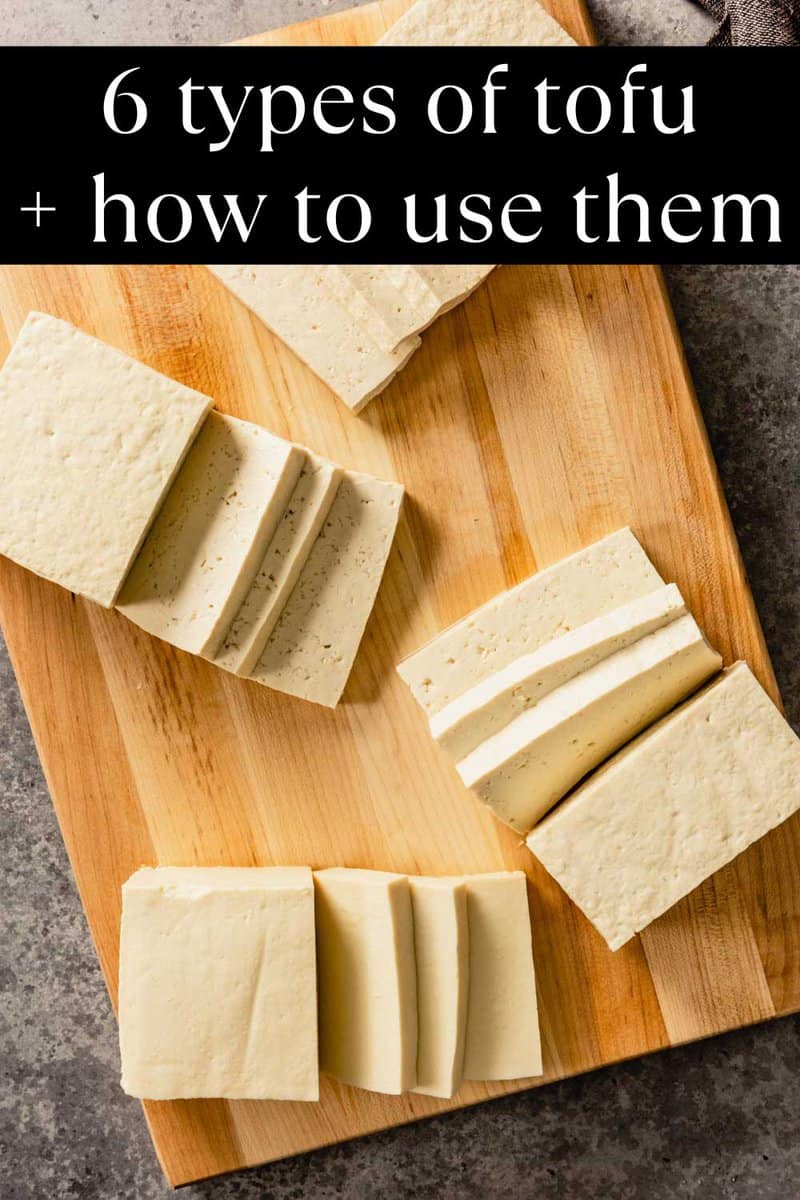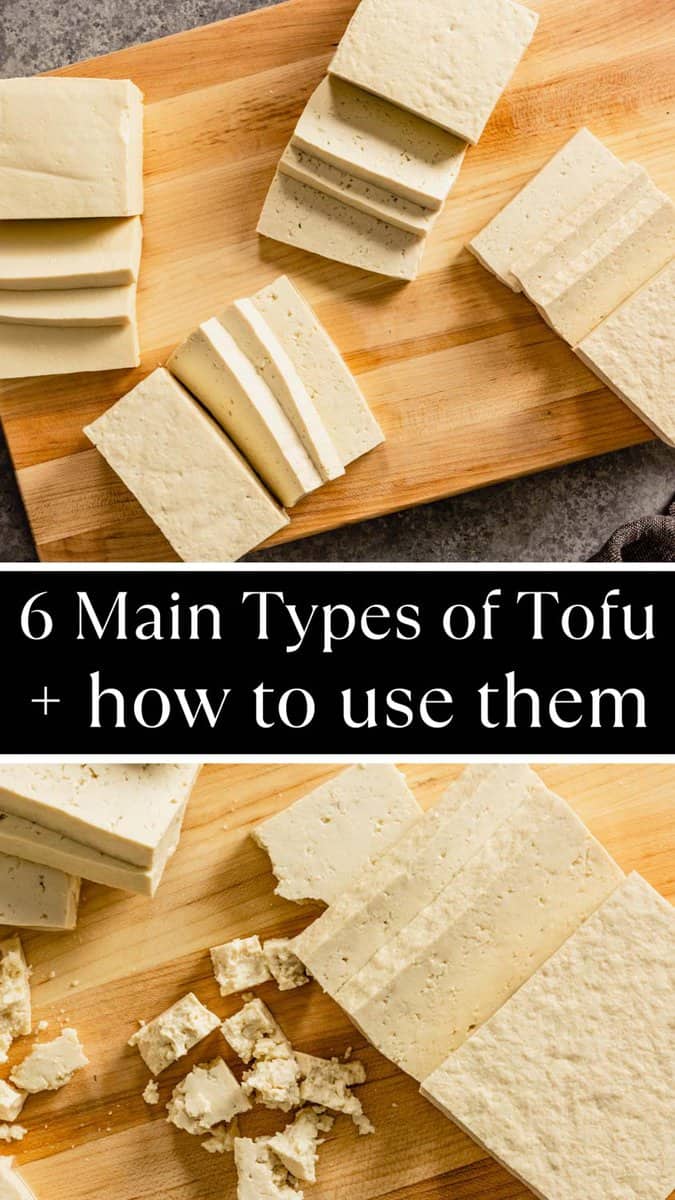The popularity of plant-based proteins has increased over the past several years, tofu being one of the most researched on the market. In this article, I spill the beans on all the types of tofu, leaving no questions unanswered.
Table of Contents
- What Is Tofu Made Of
- Where to Find Tofu In The Grocery Store
- What Does Tofu Taste Like
- Can You Eat Tofu Raw?
- How to Use Different Types of Tofu
- Soft Silken
- Soft tofu
- Medium-Firm tofu
- Firm tofu
- Extra-firm tofu
- Super-firm tofu
- Tofu skins
- Fermented tofu or Chao
- How To Press Tofu
- How to Marinate and Season Tofu
- How to Get Super-Crispy Tofu
- Nutrition Benefits of Soy
- How to Store Tofu
What Is Tofu Made Of
Tofu is made from white soybeans (not fresh green soybeans, also known as edamame), that have been ground and soaked in water (or made into soy milk), heated, and then curdled. The curds are poured into blocks and pressed into different consistencies. Silken tofu is made from soy milk that has been coagulated without curdling the milk, this is the softest consistency of tofu. The difference between each type of tofu is the amount of water content. A good rule of thumb—as firmness increases, the water content decreases.
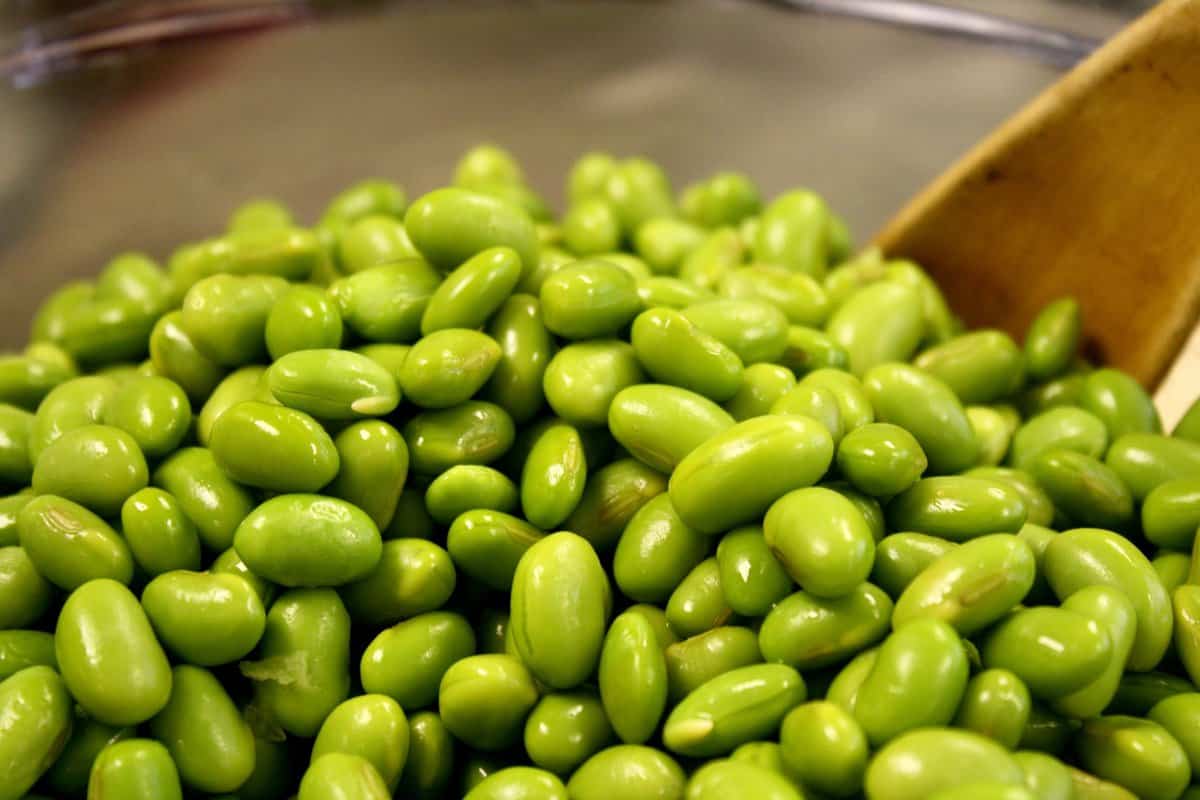
Where to Find Tofu In The Grocery Store
You can find the following different types of tofu in your local grocery store: silken (extra-soft), soft, medium, firm, extra-firm, and super firm. Tofu is typically located on a refrigerated shelf in the produce section. You can find vacuum-packaged tofu (this is how silken tofu is packaged), in the health foods section of the grocery store.
What Does Tofu Taste Like
Without seasoning or being marinated, tofu has a bland and slightly beanie flavor. The good news, this makes tofu a versatile blank-canvas-type ingredient for cooking. When prepared correctly, tofu can pack a flavor punch.
Can You Eat Tofu Raw?
You can eat any type of tofu raw. Silken and soft tofu are most commonly used raw due to their creamy, soft texture. Silken tofu is great in chocolate mousse or thrown into smoothies for a boost of protein.
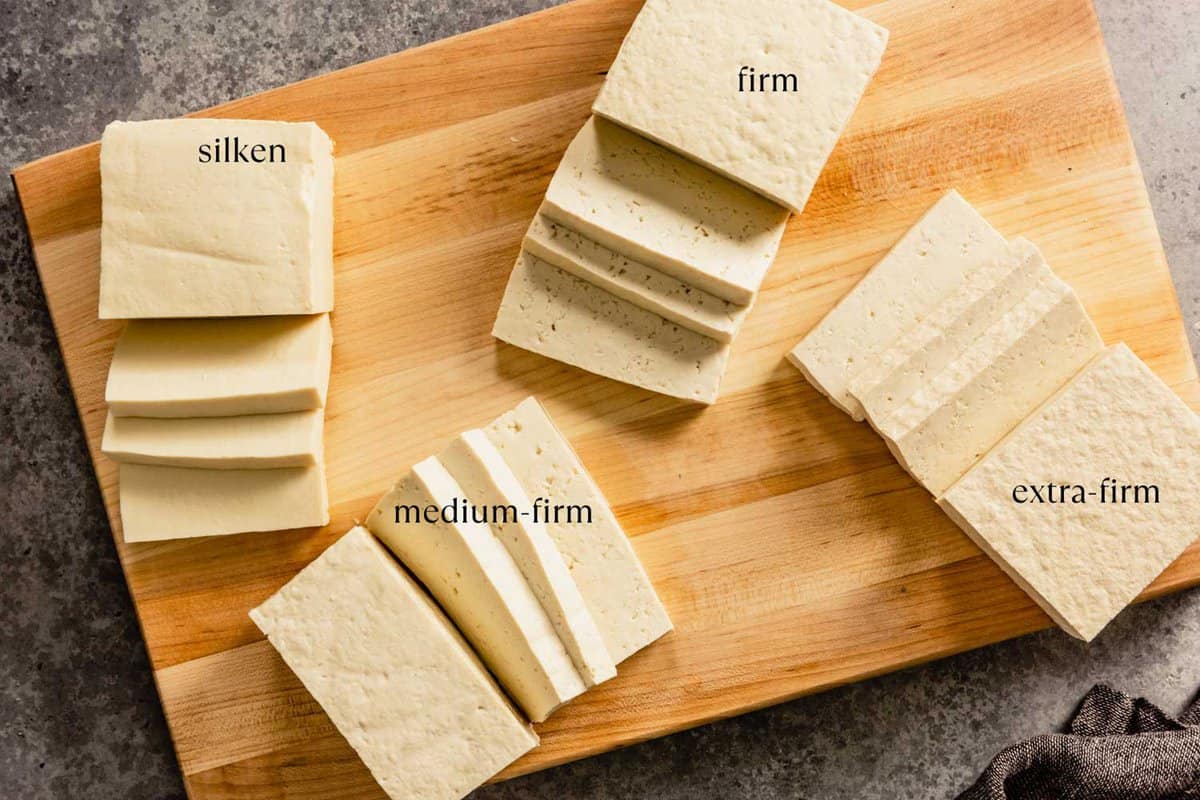
How to Use Different Types of Tofu
We’ve got a list of more than 20 healthy tofu recipes for you to check out—breakfast, lunch or dinner, it’s all there!
Soft Silken
Soft silken is the softest tofu and has the highest water content. Silken tofu has a creamy, custard-like texture and is best used in smoothies, desserts, sauces, dips, and as egg substitute in baking. I don’t recommend pressing this type due to its high water content. Try this Vegan Spinach Artichoke Dip using silken tofu.
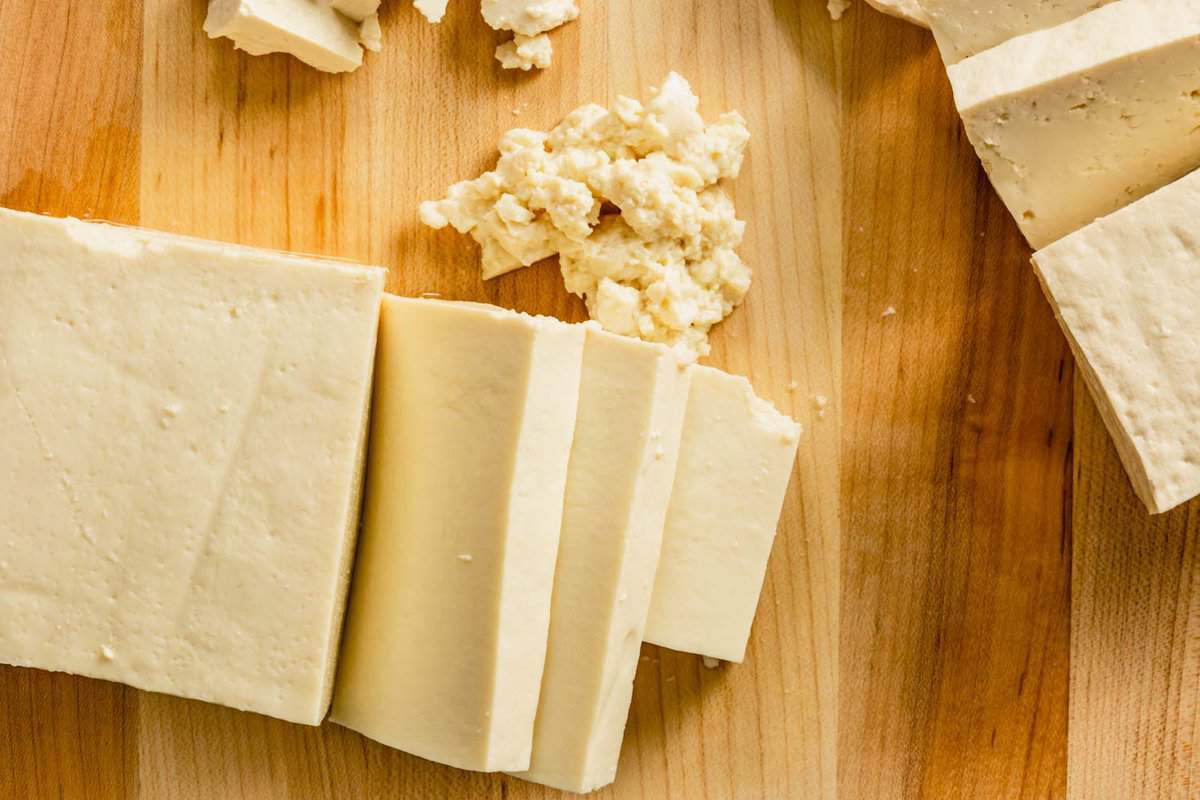
Soft tofu
Soft tofu is similar to silken tofu in regards to its smooth consistency. However, soft tofu has been curdled and lightly pressed. You can use soft tofu in recipes similar to those listed above for silken tofu. This type of tofu is also not recommended for pressing due to its high water content. Try Soft Tofu Scramble using soft tofu.
Medium-Firm tofu
Also labeled regular tofu in the grocery store, medium tofu is denser than silken and soft tofu and can easily break apart. It’s best to avoid stir-frying or pan-frying this type due to its crumbly nature. Medium tofu can be pressed and is best simmered into soup or scrambled like eggs. Try this Spicy Braised Tofu using medium tofu.
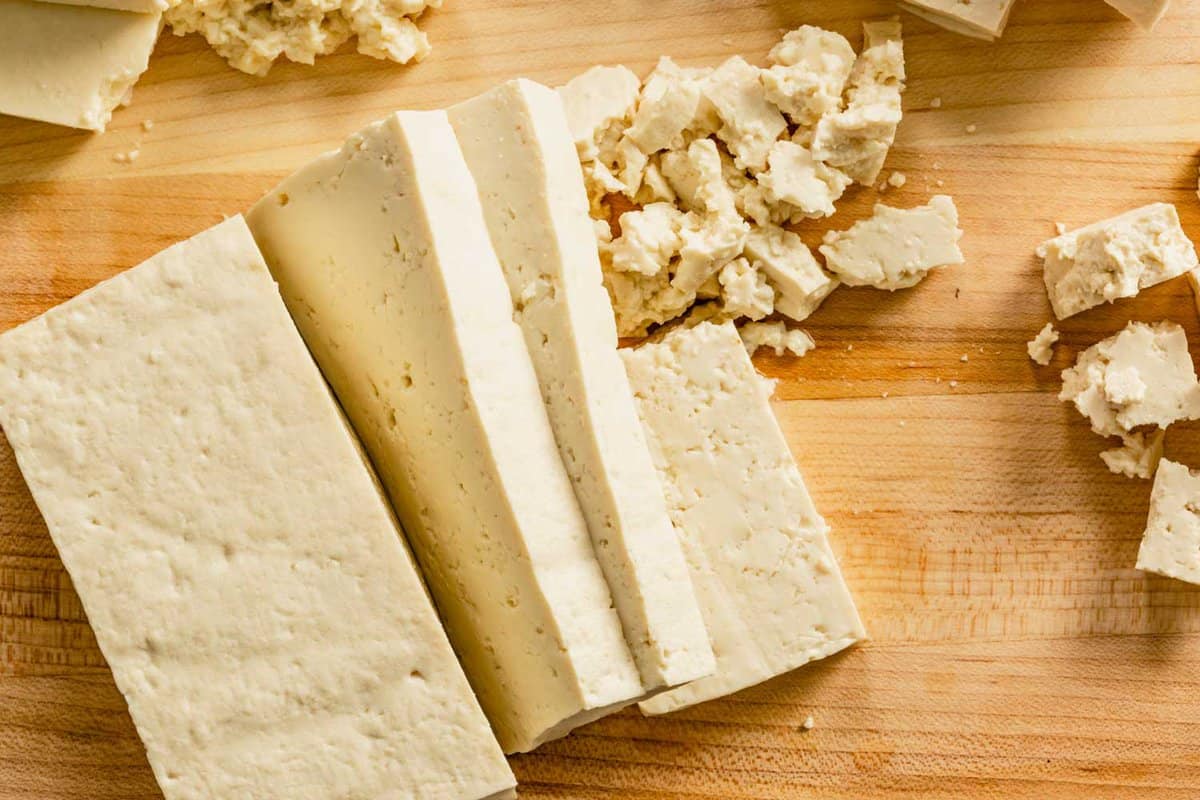
Firm tofu
Firm tofu is the most widely available tofu you can buy. It’s been pressed longer than medium tofu and can easily be stir-fried, pan-fried, deep-fried, or put in a stew. This type of tofu can be pressed. Try this Korean-Inspired Pork and Tofu recipe that uses firm tofu.
Extra-firm tofu
Extra-firm tofu is great to slice, cube, and can be pan-fried, stir-fried, deep-fried, baked, grilled, made into kebabs, and used like ground meat. This type of tofu can also be pressed. Try this Tofu Tikka Masala recipe using extra-firm tofu.
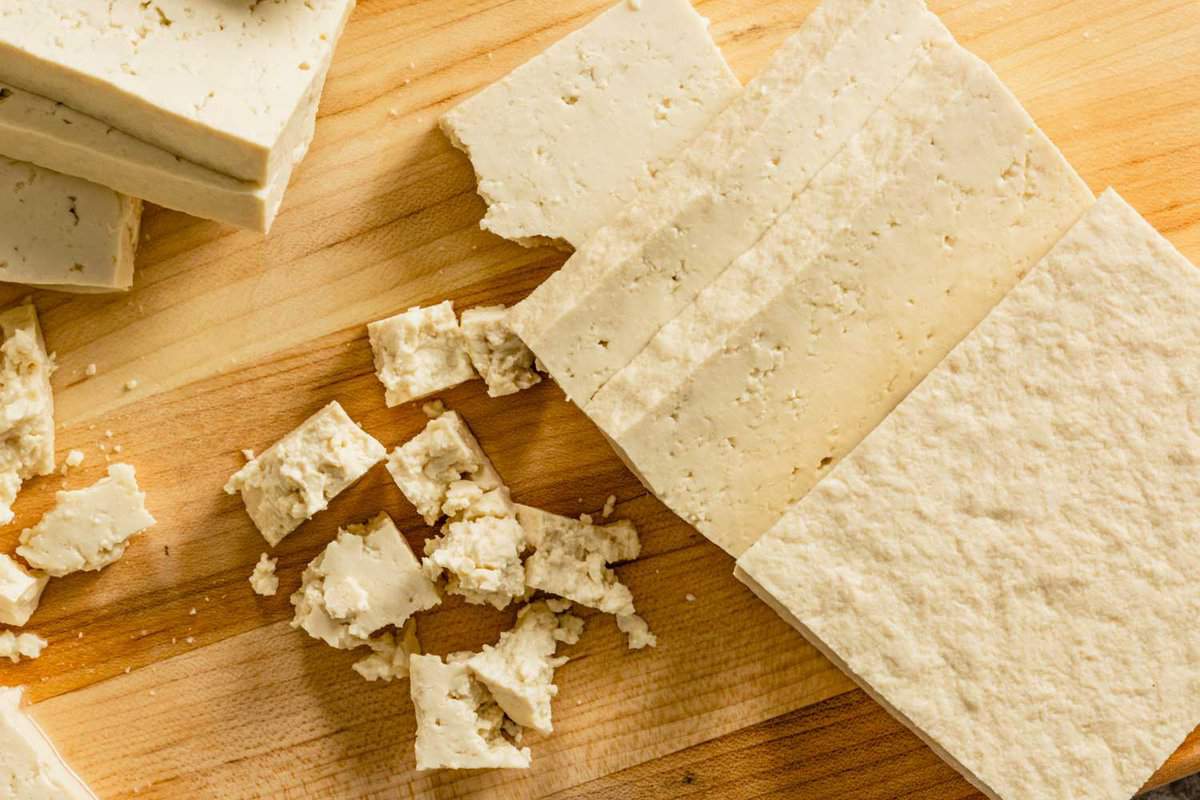
Super-firm tofu
Super-firm tofu can easily be mistaken for meat in dishes because out of all the tofu consistencies listed, it has been pressed the longest. This type of tofu can be hard to find sometimes, but if you do find it, prepare it like you would extra-firm tofu. Try this Tofu Fried Rice recipe using super firm tofu that has not been pressed.
Tofu skins
Tofu skins are pre-cooked and ready to consume. They are commonly used in cold Asian salads, quick stir-fries and even bok choy. Look for them at your local Asian market.
Fermented tofu or Chao
Fermented tofu is essentially tofu left to ferment for a month or more, brined and then soaked in any number of sauces and seasonings but most commonly rice wine, chilis or red bean curd. Use fermented tofu in dipping sauces, served over rice, in soups, and as a condiment. Look for fermented tofu at your local Asian market.
How To Press Tofu
Excess liquid in tofu can be removed through pressing, which creates a meaty texture. The best types of tofu to press are medium, firm, and extra-firm tofu. There are two easy ways you can press tofu, using a tofu press, I recommend using this tofu press, or with a few kitchen essentials you already have on hand!
How to press tofu with a tofu press:
- Drain the liquid from the block of tofu and place it in a tofu press.
- Use the knobs on the tofu press to create pressure on both sides of the block of tofu, you should be able to see additional moisture drip into the bottom of the tofu press.
- Press the tofu for 20–30 minutes.
How to press tofu using kitchen towels:
- Drain the liquid from the block of tofu and wrap it in a clean dishcloth.
- Place the wrapped tofu between two cutting boards or sheet pans and set a heavy object on top (canned goods are great for this).
- Press the tofu for 20–30 minutes, switching out towels if needed.
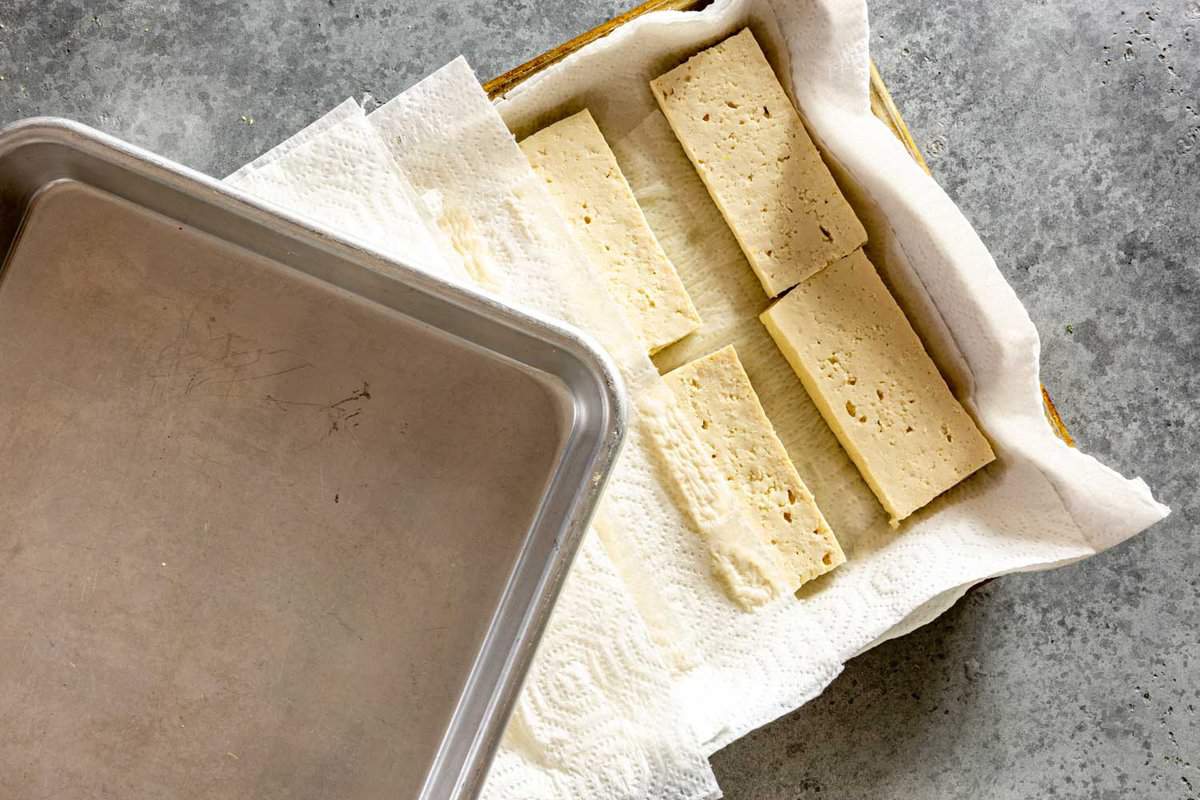
How to Marinate and Season Tofu
One of the biggest misconceptions is that tofu soaks up marinades or seasonings around it! This can actually only be achieved with super porous, frozen tofu. The best way to flavor your tofu is to pan-fry it until it is golden brown, add marinade until the fried outside soaks up the flavor and the heat from the pan creates a glaze or sauce.
How to Get Super-Crispy Tofu
It’s important to slice and press the tofu well before pan-searing or frying. Drawing out excess moisture will ensure it sears instead of steams. Additionally, we recommend coating the tofu planks or cubs in cornstarch or arrowroot starch. This simple step creates a beautiful crispy, golden crust when fried in oil.
We use this method in out Tofu Banh Mi recipe and it’s delectable!
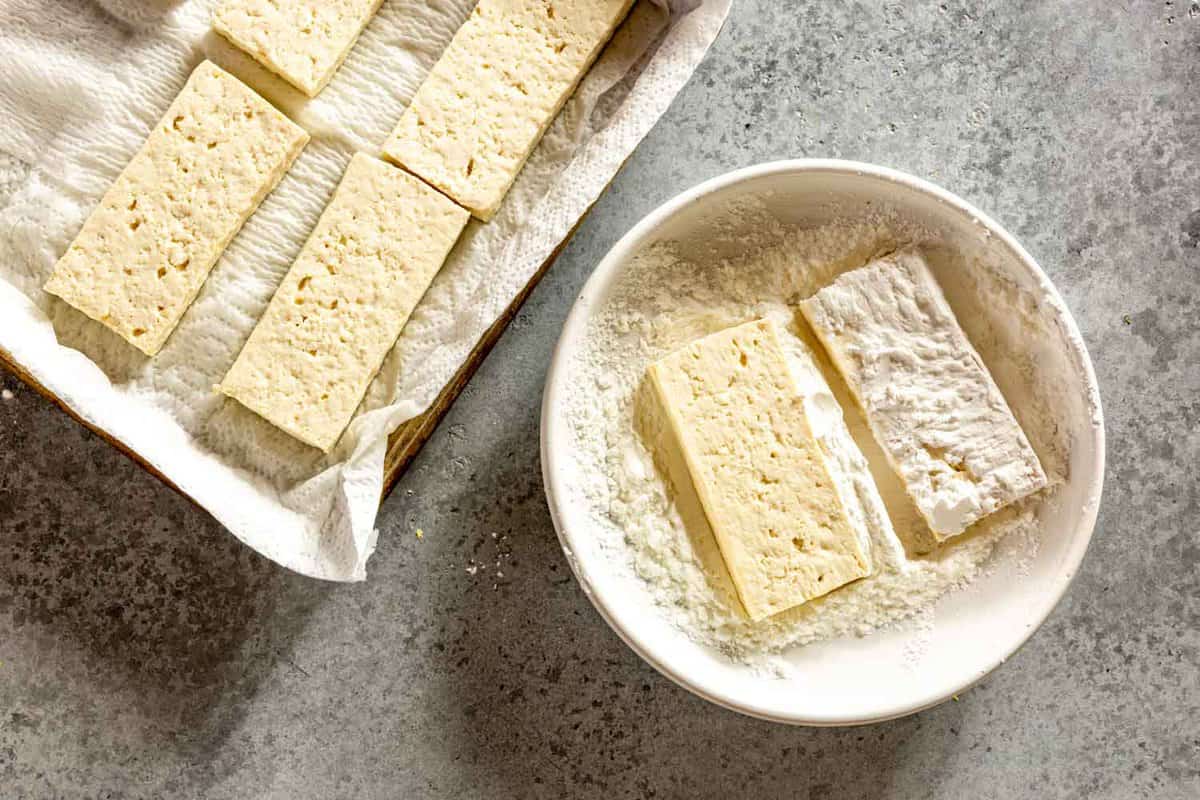
Nutrition Benefits of Soy
Minimally processed soy foods such as tofu, tempeh, soy milk, miso, and natto offer a variety of health benefits. What makes soy unique, is that it’s a complete protein, meaning it contains all nine essential amino acids making it a high-quality source of protein.
Soy foods are also a good source of fiber and omega-3 fatty acids, both of which contribute to heart health. Additionally, soy foods are high in calcium and iron.
How to Store Tofu
Store unprepared tofu in a container of water in your refrigerator for 2–3 days after opening. Change the water out daily.
